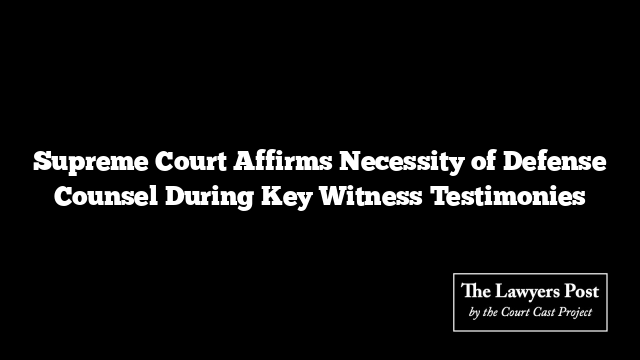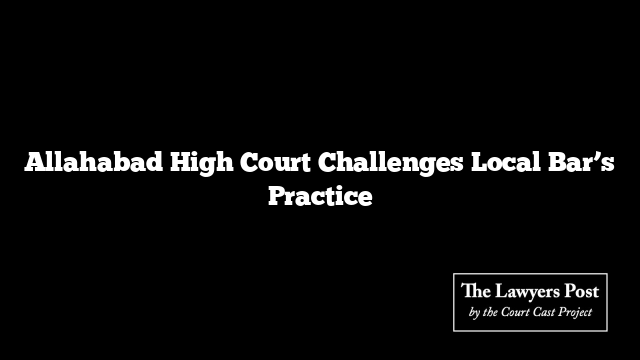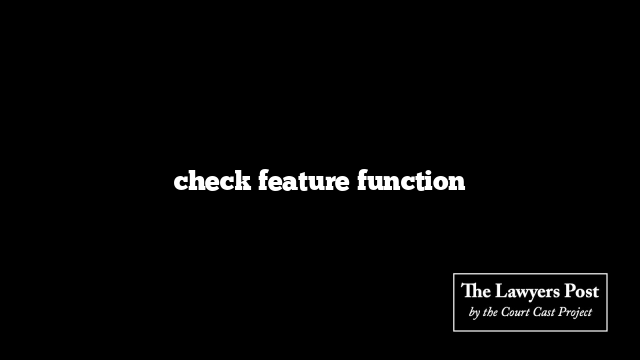In a pivotal ruling, the Supreme Court emphasized the indispensable requirement for the presence of defense counsel during the examination-in-chief of significant prosecution witnesses. This declaration came to light in a case involving two individuals charged under various sections of the Indian Penal Code and the Information Technology (Amendment) Act, 2008.
A bench comprising Justice Abhay S. Oka and Justice Ujjal Bhuyan meticulously examined the procedural intricacies and the overarching principles of fair trial and justice. They highlighted that the fundamental procedure for witness examination, as outlined in Section 138 of the Indian Evidence Act, 1872, was contravened during the trial proceedings.
Legal Proceedings Overview
| Aspect | Detail |
|---|---|
| Appellants | Two accused in cases under IPC & IT Amendment Act |
| Respondent | State of Tamil Nadu |
| Legal Representation | Pranesh Rajamanickam for appellants; V. Krishnamurthy for respondent |
| Court Observation | Misstep in not engaging defense counsel during critical witness testimonies |
| Supreme Court’s Order | Directed a de novo trial with the provision of legal aid to the accused |
| Bail Conditions | Granted bail to the appellants under strict terms, including passport deposit |
The narrative began with the appellants’ unsuccessful bail application in the High Court, leading to the Supreme Court’s intervention upon noticing procedural irregularities in the trial court’s handling of witness examinations. The apex court discovered that the trial court proceeded with the examination-in-chief of 12 prosecution witnesses in absence of the defense counsel, a move deemed contrary to legal norms.
Examination-In-Chief: Legal and Procedural Insights
The apex court meticulously dissected Section 242 of the CrPC, underscoring it as an exception to the conventional witness examination sequence. The deviation observed in the trial court, fueled by a High Court directive for a time-bound case resolution, was criticized for its departure from established legal practice. The justices argued that an extension request to the High Court could have circumvented this procedural anomaly.
Advocacy for Defense Representation
The Supreme Court underscored the trial court’s oversight in not appointing a legal aid advocate for the appellants prior to initiating witness examinations. This misstep, the Court noted, breached the accused’s rights to fair representation and the opportunity to challenge the prosecution’s evidence through cross-examination.
Ruling Implications and Directions
Acknowledging the procedural lapses and the potential prejudice against the accused, the Supreme Court mandated a de novo trial. It entrusted the responsibility of appointing legal aid for the appellants to the Additional Chief Metropolitan Magistrate, Egmore, Chennai, ensuring a reexamination of witnesses under fair conditions. The appellants were granted bail with specific stipulations, marking a significant step towards rectifying the trial’s procedural deficiencies.
Case Citation
Ekene Godwin & Anr. v. State of Tamil Nadu (Neutral Citation: 2024 INSC 229)
This landmark decision not only reaffirms the judiciary’s commitment to upholding the principles of justice and fair trial but also serves as a procedural beacon for future legal proceedings, ensuring that the accused’s rights to competent representation are never sidelined.





